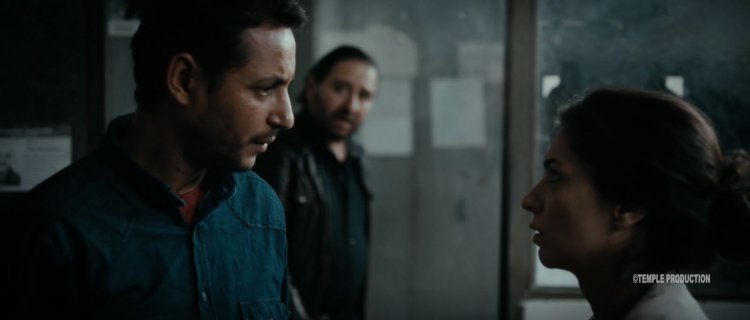Chakib Taleb Bendiab’s ALGIERS unravels the crime mystery of child abduction in Algeria

Tackling an issue as pressing as terrorism and civil war that has plagued Algeria for decades, Chakib Taleb-Bendiab’s feature-length directorial debut ALGIERS is by all means a cinematic masterpiece that sheds light on the harrowing issue of child abduction in the country, where shades of the past are still haunting the present, revealing a mind-blowing and horrifying crime story based on true events.
The film, which world premiered at the Flickers’ Rhode Island Film Festival in the US, winning the top award (Best Film), opens with a bone-chilling scene where children play happily in their neighborhood only for a girl to go missing when a car suddenly drives by, setting the stage for one of the hardest and most common crimes that happen in everyday Algeria — child abduction.
Together, a psychiatrist played by Meriem Medjkane and a police officer portrayed by Nabil Asil — who isn’t very welcoming at the beginning of a psychiatrist interfering in his investigative work — begin to unravel this pressing phenomenon.
In their quest, they must contend with a society that is now terrified of every adult roaming near a child and secretive around victims that have returned in fear of the shame that comes from having a raped child in the family.
Commenting on those affected by the latter, director Chakib Taleb-Bendiab said, “It's deeply rooted in our Arab-Muslim culture: the shame of being seen as weak, the shame of the family, and the shame of society. As if it were the victim's fault.”
In an approach that isn’t similar to typical crime investigative thrillers, Chakib brilliantly connects the past to the present, as if he is blaming the mistakes committed in the past by society for the crisis the country is currently suffering while also creating an arc for the different conflicts taking place on the sidelines of such a crime.
Thus, we see society succumbing to its own paranoia, lynching anyone they find suspicious, while the police struggle to dedicate enough resources to solving the cases while busy trying to maintain order.
All in all, the film presents a societal awakening with a few shocking revelations and brilliantly engages in indirect criticism of Algerian society, which the director blames for the current situation. The film also doesn’t neglect the emotional and psychological arc, keeping the audience engaged while shedding light on a pressing social issue that demands urgent attention and a transformative societal response.

 Concept Team
Concept Team 










